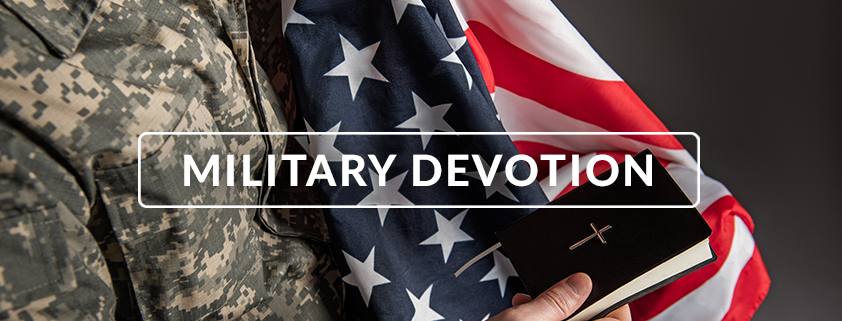A Greater America – August 26, 2022
A Greater America – August 26, 2022
Righteousness exalts a nation, but sin is a disgrace to any people.
Proverbs 14:34
Devotion based on Proverbs 14:34
See series: Military Devotions
If we ask the question “What makes America great?” we would receive a variety of answers. Some would contradict others.
It makes us wonder what we might answer. A flurry of possibilities quickly comes to mind.
Surely its natural resources make this nation great. Our Great Plains have been called the breadbasket of the world. Beneath our soil lies a treasure chest of minerals.
A strong economy has often been pointed to as an indicator of greatness.
The list of good answers for greatness could get quite long. But we certainly would want to place a superior military force near the top of the list.
Clearly, history shows that America has been great in the past. Her beacon of freedom has shown forth to light up the path for other nations. Time and again her mighty arm has reached out to protect others from deadly threats.
The phrase “God shed his grace on thee.” has been richly demonstrated.
Yet today many are not so sure.
Their uncertainty is not just about America’s greatness. Increasing numbers are uncertain about the whole idea of God.
That is reflected in the lives of Americans. What do foreigners see when they look at our country? What does God see?
Decency? Respect for others? Honorable thoughts and actions?
Hard to find.
Crime on the streets. Violence in the homes. Vulgarity spewing from the mouths of young and old.
Easy to find.
It has been said, “In war, life is cheap.” Now, protestors demand not even the womb should be safe.
King David’s son, Solomon, was a king in his own right. David’s reign was a time of bloodshed. Solomon’s was a span of peace.
As he knew and confessed, his famed wisdom, his unsurpassed wealth, and the greatness of his nation were undeserved gifts from the Lord of creation, whom he served.
The words that he recorded in the book of Proverbs were not just his own musings. They were truths that the Holy Spirit led him to record.
As we consider the condition of our own nation, it would be most wise to consider what the Lord of nations has to say.
“Righteousness exalts a nation, but sin is a disgrace to any people.”
The statement is as simple as it is true.
The sins of our people, of any people, of our own person, are a disgrace.
A nation that showcases sin should be ashamed—and pitied. Unless changed, its future is destined for devastating judgment.
The only hope rests with the source of righteousness—found nowhere else but in the holy Lord God whose holiness stands ready to cover all unrighteousness.
Nothing is greater than to be approved by God. Without him, there is no greatness. Without him, any claim to greatness is empty—and will be exposed as such.
The psalmist was right. “Blessed is the nation whose God is the Lord.”
The lesson is clear.
The more America turns to the righteous God, the greater America will be.
Prayer: Bring your healing hand to our land, holy God. Turn our hearts to you. By declaring “How great thou art!” we acknowledge your greatness and pray for your forgiveness and blessing. Amen.
Points to ponder:
- Why is sin not only excused by many but even bragged about?
- Why is prayer more important than politics?
- What has brought America closer to God in the past?
Written and recorded by Rev. Paul Horn, WELS National Civilian Chaplain to the Military, San Diego, California.
All Scripture quotations, unless otherwise indicated, are taken from the Holy Bible, New International Version®, NIV®. Copyright ©1973, 1978, 1984, 2011 by Biblica, Inc.™ Used by permission of Zondervan. All rights reserved worldwide. Note: Scripture reading footnotes are clickable only in the web version.

